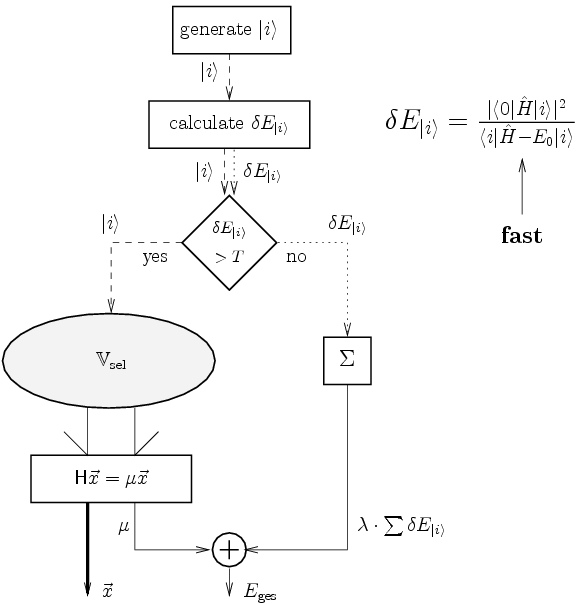


Next: Perturbation Theory (PT)
Up: Configuration Interaction Methods (CI)
Previous: Introduction
Toggle Background
During my Ph.D. thesis I wrote an individually selecting MRCI program
[1]
(DIESEL-CI: direct internal
external individually selecting CI).
The DIESEL package implements the selection and
energy extrapolation schemes according to the following scheme
as given by [2,3].
Major benefits of DIESEL-MRCI
- n1.5 scaling in the number of selected CSFs
(former scaling: n2
 significant speed up
in comparison to former program packages (factor 10 at 80000 CSFs))
significant speed up
in comparison to former program packages (factor 10 at 80000 CSFs))
- Automatization of a multi-reference calculation
- Interface to MOLCAS and CHARMM
- Parallel implementation
- Density matrices
- Property calculation
- Generation of natural orbitals
- Various selection schemes (Epstein Nesbet, Møller Plesset, random)
- Very flexible excitation engine (orbital restrictions)
- Symmetrization features
The DIESEL package has been used by many different groups
(Universities of Bonn, Cologne, Würzburg, Heidelberg, Potsdam, Mülheim, Leiden, Carleton,
New Brunswick, Praha) and many publications rely on this package.
The DIESEL package furthermore includes multi-reference perturbation theory which will be
described below.
Michael Hanrath
2008-08-13

